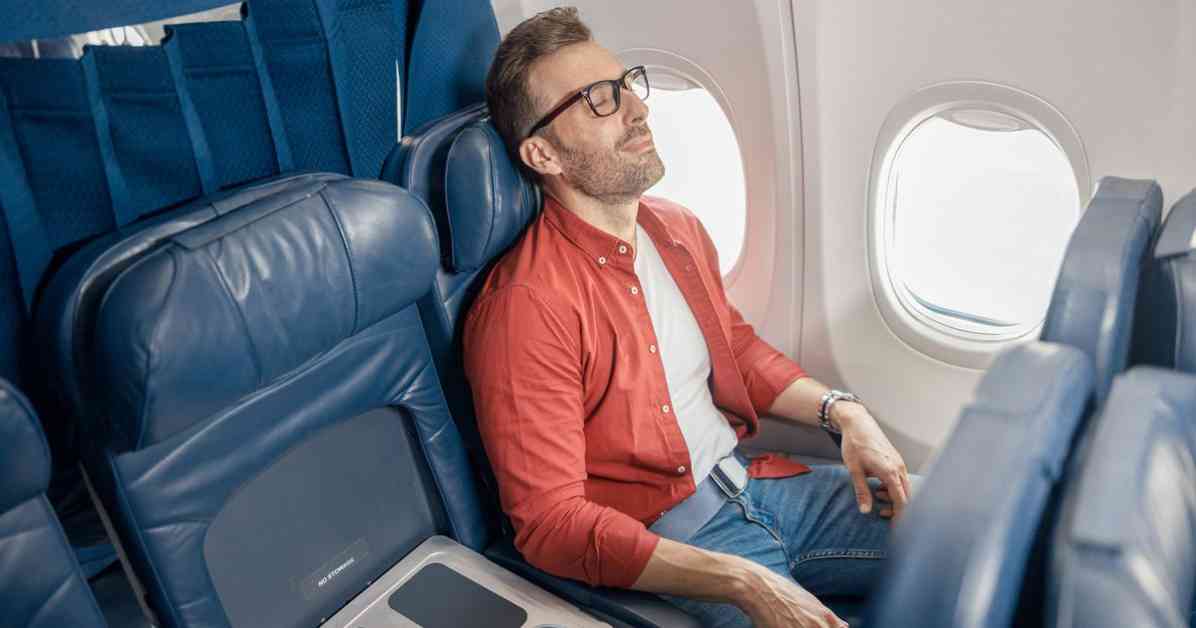Controversy Erupts as Man Refuses to Give Up Plane Seat for Disabled Couple – Public Opinion Divided
The issue of swapping seats on planes has always been a hot topic among travelers. Whether you are a frequent flyer or an occasional traveler, chances are you have been in a situation where you were asked to switch seats with another passenger. The reasons for such requests can vary, from families wanting to sit together to passengers hoping for a better view. Many people believe that if you have reserved a specific seat on a flight, you are under no obligation to give it up. While it is always nice to be considerate and agree to a seat swap if you are willing, it is ultimately your decision, and you are within your rights to decline if you do not want to switch seats.
However, what if the person asking for the seat swap has a compelling reason, such as not wanting their children to sit alone or having a disability? In such cases, some may feel more inclined to accommodate the request as they perceive the other party as being more “in need.” Recently, a man found himself in a controversial situation when he refused to exchange seats with a disabled couple on a flight, despite being reprimanded by the cabin crew for his decision.
In a Reddit post, the man shared his experience on a four-hour flight with his girlfriend, who has a fear of flying and requires medication to manage the journey. The couple had reserved seats B and C in a row with a middle seat and an aisle seat. However, upon boarding the plane, they found an older couple sitting in one of their seats, with the woman in seat A and her husband in seat D. The older couple had actually booked seats A and D on the other side but hoped the man and his girlfriend would switch seats with them.
The man politely declined the offer, explaining that they had booked seats B and C to sit together. To his surprise, a flight attendant sided with the older couple, stating that one of them was disabled and that the younger couple should give up their seats so the older couple could sit together. Despite the flight attendant’s insistence, the man stood his ground and declined the offer once again. Eventually, the woman in seat 1B moved to allow the man and his girlfriend to sit down.
Commenters on the post supported the man’s decision, arguing that if the older couple needed special accommodations, they should have arranged it with the airline in advance. One commenter noted, “You booked those seats in advance; they are yours. If the elderly couple needed special accommodations, they should’ve figured that out while booking.” Another commenter suggested that flight attendants should ask for volunteers to switch seats rather than directly asking passengers, as it can create awkward situations.
The incident sparked a debate among travelers, with opinions divided on whether the man was justified in refusing to give up his seat. Some argued that he had the right to keep the seats he had reserved, while others believed that he should have been more accommodating to the disabled couple. The case raises questions about the rights of passengers when it comes to seat assignments and the responsibilities of airlines to accommodate passengers with disabilities.
Passenger Rights and Responsibilities
When it comes to seat assignments on flights, passengers have certain rights and responsibilities. Airlines typically allow passengers to select their seats at the time of booking, either for free or for a fee, depending on the airline and the type of ticket purchased. Once a seat has been reserved, it is considered the passenger’s seat for the duration of the flight. However, there are situations where airlines may need to make changes to seat assignments, such as for operational reasons or to accommodate passengers with special needs.
Passengers also have the right to request specific accommodations, such as extra legroom seats or seats closer to the front of the plane. Airlines are required to make reasonable accommodations for passengers with disabilities, including providing seating arrangements that meet their needs. In the case of the disabled couple mentioned earlier, it is possible that the airline could have made arrangements to accommodate their needs without requiring other passengers to give up their seats.
Improving Communication and Understanding
One of the key issues highlighted by the incident is the need for better communication and understanding between passengers and airlines. Clear communication about seating arrangements and any special needs or accommodations required can help prevent misunderstandings and conflicts onboard flights. Airlines should also ensure that their staff are trained to handle such situations with sensitivity and professionalism, taking into account the rights of all passengers involved.
Passengers, on the other hand, should be aware of their rights when it comes to seat assignments and should feel empowered to advocate for themselves when necessary. While it is important to be considerate and accommodating to others, passengers should not feel pressured to give up their reserved seats if they are not comfortable doing so. By fostering a culture of understanding and respect among passengers and airlines, we can create a more harmonious and enjoyable travel experience for everyone involved.



























